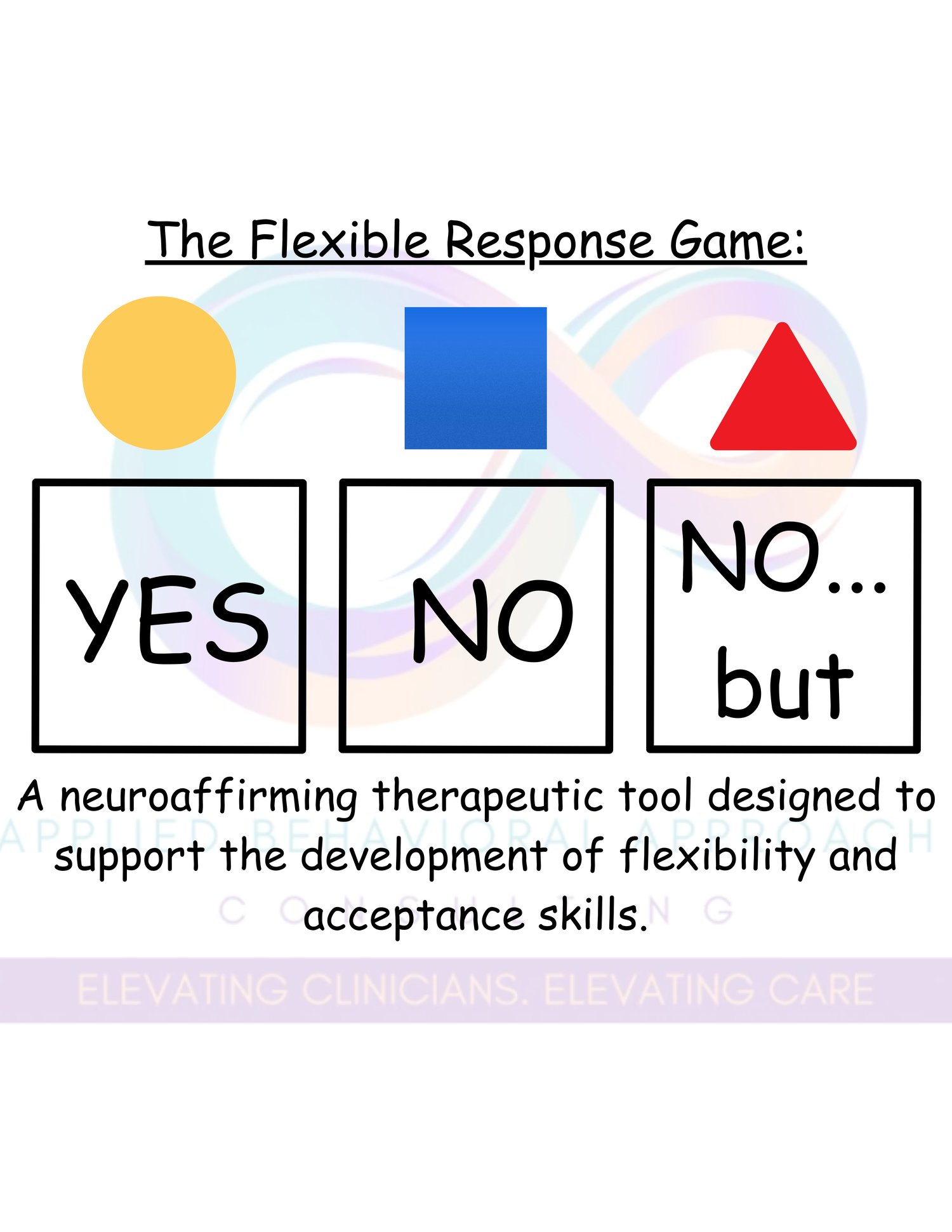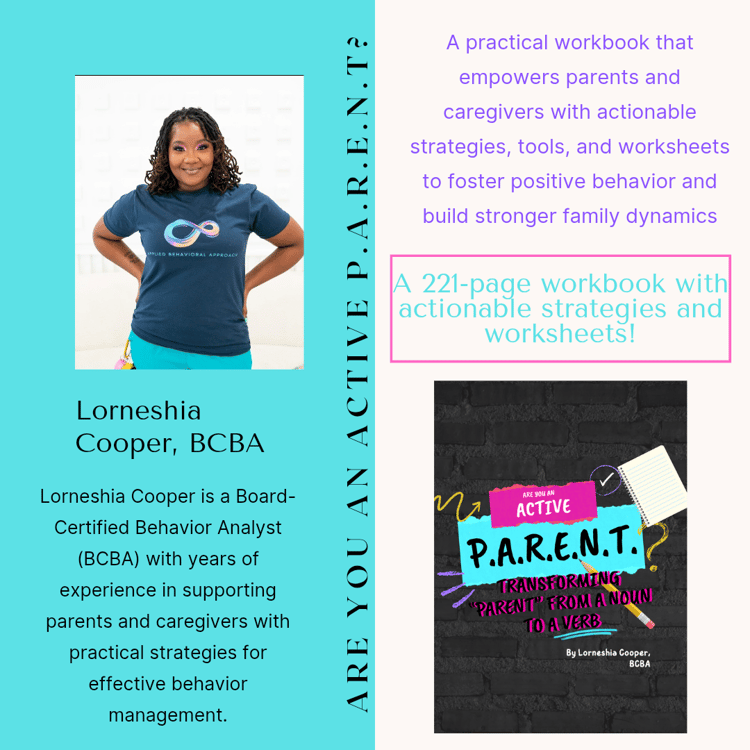
The Flexible Response Game™: Playfully Supporting Flexibility, Advocacy & Regulation in “No” Moments.
The Flexible Response Game™
Playfully Supporting Flexibility, Advocacy & Regulation in “No” Moments
You know those moments when a child hears “no” and their whole body says, “This doesn’t feel okay”?
That moment matters—and how we support it can shape their sense of safety, trust, and flexibility.
The Flexible Response Game™ is a playful, neuroaffirming tool designed to help kids practice flexibility, navigate disappointment, and advocate for alternatives—without shame, pressure, or compliance-based demands.
Created by a BCBA who believes in honoring each child’s voice, this game invites learners to experience different kinds of responses (yes, no, and no-but) in a low-stakes, relationship-centered way. Through shared play and co-regulation, children build the real-life skill of navigating “no” while still feeling heard and supported.
🎯 What It Helps Support
- 🧠 Flexibility in the face of change or denied requests
- 🗣️ Advocacy and expressing preferences when things don’t go as expected
- 💬 Tolerance for “no” answers—without suppressing emotions
- 🤝 Co-regulation and shared problem-solving through playful interaction
🧠 Why It Works
- Rooted in self-advocacy, not suppression: This isn’t about making kids "handle it better"—it’s about building the language and trust to feel supported through disappointment.
- Neuroaffirming by design: No forced turns. No emotional invalidation. This game honors different ways of processing and encourages curiosity over correction.
- Built for connection, not correction: Designed to spark joint engagement, emotional coaching, and playful back-and-forth that feels safe and empowering.
- Ethical skill-building: Based in the principles of Functional Communication Training and assent-based care—this tool creates teachable moments without coercion.
📦 What’s Included
- 🟩 Full instructions with setup, adaptations, and trauma-informed guidance
- 🟧 Printable “YES,” “NO,” and “NO, BUT…” decision cards
- 🟥 A customizable Win Card (to adjust challenge level or match IEP/goal targets)
- 🟦 Colorful shape tokens for collecting and tracking progress
- 🧾 Tips for fading in the “NO” card gradually if needed
- ✂️ Ready-to-cut visuals (lamination recommended for long-term use)
👩🏽⚕️ Ideal For
- Parents or caregivers looking for non-punitive ways to support emotional development
- RBTs, BCBAs, and therapists seeking alternatives to rigid behavior programs
- Educators supporting flexible thinking and regulation in group settings
- Anyone wanting to model consent, flexibility, and self-advocacy in play
⚠️ Please Read Before Playing
This game isn’t one-size-fits-all. It’s a powerful tool when thoughtfully matched to the learner:
- Always assess readiness first—especially if the child has a history of trauma, prolonged distress with denied requests, or aggressive behaviors.
- Consult with your child’s clinical team before introducing this game.
- If the learner shows signs of distress or dysregulation during the game, stop. Co-regulation comes first. The game can wait.
💬 Final Note
Accepting change and denied access isn’t easy for every nervous system—and it shouldn’t have to be faced alone.
This game offers a safe space to try again, reframe disappointment, and explore boundaries with support.
It’s not about getting it perfect—it’s about practicing it together.


